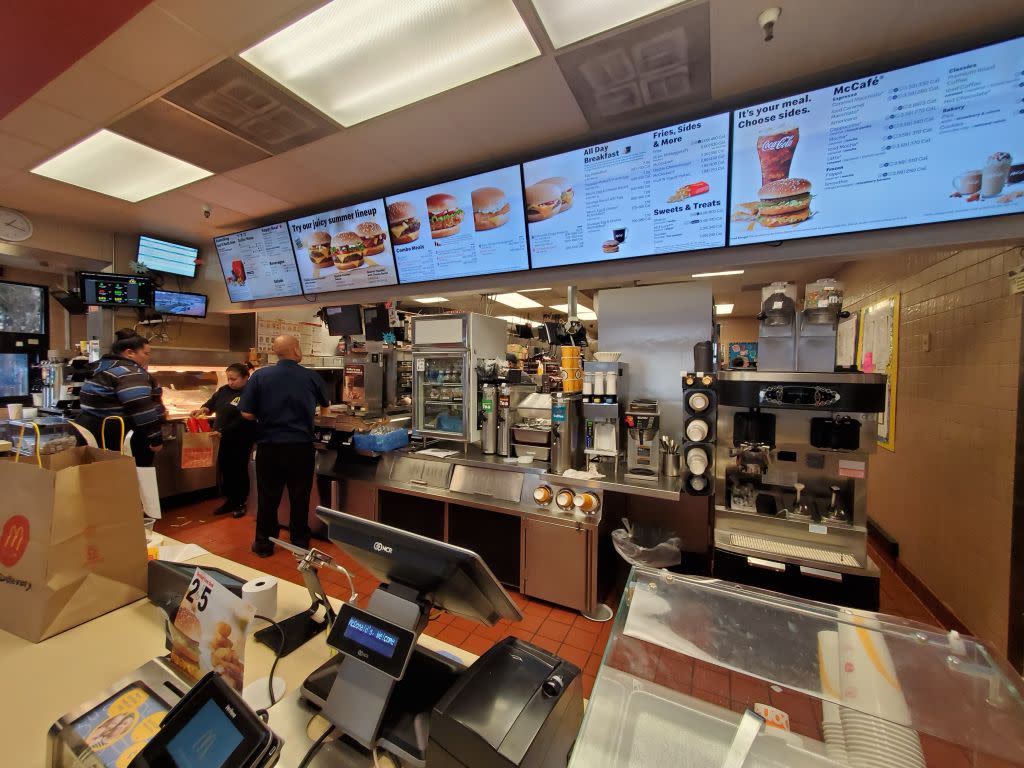2023: the year of rising child labor

The labor market stayed strong this year despite the Federal Reserve's aggressive interest rate hikes, which were designed to slow the economy and bring down stubbornly high inflation. The continued hiring by American companies helped the economy avoid falling into a recession, but the hiring came with some unintended consequences. One was a surge in child labor, as employers brought in the cheapest labor they could find during a tight job market.
The Labor Department reported in October that it had found 5,792 minors who had been put to work in violation of child labor laws in the fiscal year that ended Sept. 30. That was an 88% jump since 2019, and the highest level in nearly two decades, The Washington Post reported. The Fair Labor Standards Act of 1938 made it illegal to employ children under age 14 in many hazardous jobs, and limited the hours teens under 18 could work, CNN noted. But here are some of the signs that child labor was back on the rise this year:
Illegal hiring
Many businesses struggled to keep fully staffed during the pandemic, and the job market remained tight even after Covid-19 cases dropped sharply and life returned to normal. Desperate for workers, many companies hired young workers. The Department of Labor concluded cases involving 4,474 children employed in violation of federal child labor laws between Oct. 1, 2022, and July 20, 2023, a 44% increase from the year before. The department imposed more than $6.6 million in penalties, up 87% from the previous year, CNN reported.
The Labor Department announced in July that it found children as young as 14 working at 16 McDonald's franchise locations in Louisiana and Texas. Earlier in the year it learned of two 10 year olds working without pay, sometimes as late as 2 a.m., preparing and serving food — also staffing the drive-thru and cleaning up — in a McDonald's in Louisville, Kentucky. "Under no circumstances should there ever be a 10-year-old child working in a fast-food kitchen around hot grills, ovens and deep fryers," Karen Garnett-Civils, the department's Wage and Hour Division district director, said in a statement.
Some of the work children were found to be doing was more dangerous. The New York Times reported in February that migrant children were packing cereal into bags at a factory in Michigan, slicing chicken into nuggets at a plant in Alabama and doing other factory jobs, sometimes on the overnight shift. In the same month, the Labor Department announced that it had identified more than a hundred children aged 13 to 17 employed by Packers Sanitation Services, one of the biggest U.S. food sanitation companies, and working overnight shifts at facilities owned by industry giants Tyson Foods and JBS, according to The New Yorker. Some of the kids cleaned bone saws and head splitters with potentially hazardous chemicals. At least three of the children had been hurt on the job. Packers paid a civil fine of more than $1 million, but all three companies denied wrongdoing.
Changing laws
A growing number of states have started weakening protections for kids in the workplace. By June 2023, Arkansas, Iowa, New Jersey and New Hampshire had enacted laws easing restrictions, and lawmakers in at least another eight states were debating similar legislation, the New Jersey Monitor reported. The laws mostly aimed to let more minors from ages 14 to 17 "work longer and later – and in occupations that were previously off-limits for minors," according to the New Jersey Monitor.
Iowa's Republican governor, Kim Reynolds, said when she signed her state's new child labor law in May that it would "allow young adults to develop their skills in the workforce." The law limits employer liability for the injury, illness, or death of a child on the job — teens are nearly twice as likely as adults to be hurt at work. Child-rights advocates said working long hours also can disrupt a child's development, "interfere with their schooling, and deprive them of the sleep they need," according to the Monitor. This can put children at risk of injuries, work-related illnesses or dropping out of school.
Arkansas's new law, signed recently by the state's Republican governor, Sarah Huckabee Sanders, removed a requirement for 14 and 15 year olds to get parental consent and a state permit before starting a job. Sanders linked the bill to parents' rights, saying requiring a permit put "an arbitrary burden on parents," according to The New Yorker.
A crackdown
The Biden administration in February announced measures to crack down on child-labor violations. The steps included launching an interagency task force and increasing tracking of minors who enter the United States alone, NBC News reported. Some of the children found cleaning slaughterhouses in the Midwest were unaccompanied minors from Guatemala who crossed the Southern border. "We see every day the scourge of child labor in this country, and we have a legal and a moral obligation to take every step in our power to prevent it," Labor Secretary Marty Walsh said in a February statement.
Sen. Josh Hawley (R-Mo.) and Sen. Cory Booker (D-N.J.) later stepped up the effort to curb rising child labor violations, Axios reported in October. Their proposed Preventing Child Labor Exploitation Act would bar the federal government from signing contracts with companies that have violated child labor laws, or that do business with vendors that have failed to correct violations. The legislation also would require contractors to disclose past violations. "Companies that illegally employ children must be held accountable — especially those that contract with the federal government," Hawley told Axios in a statement.

